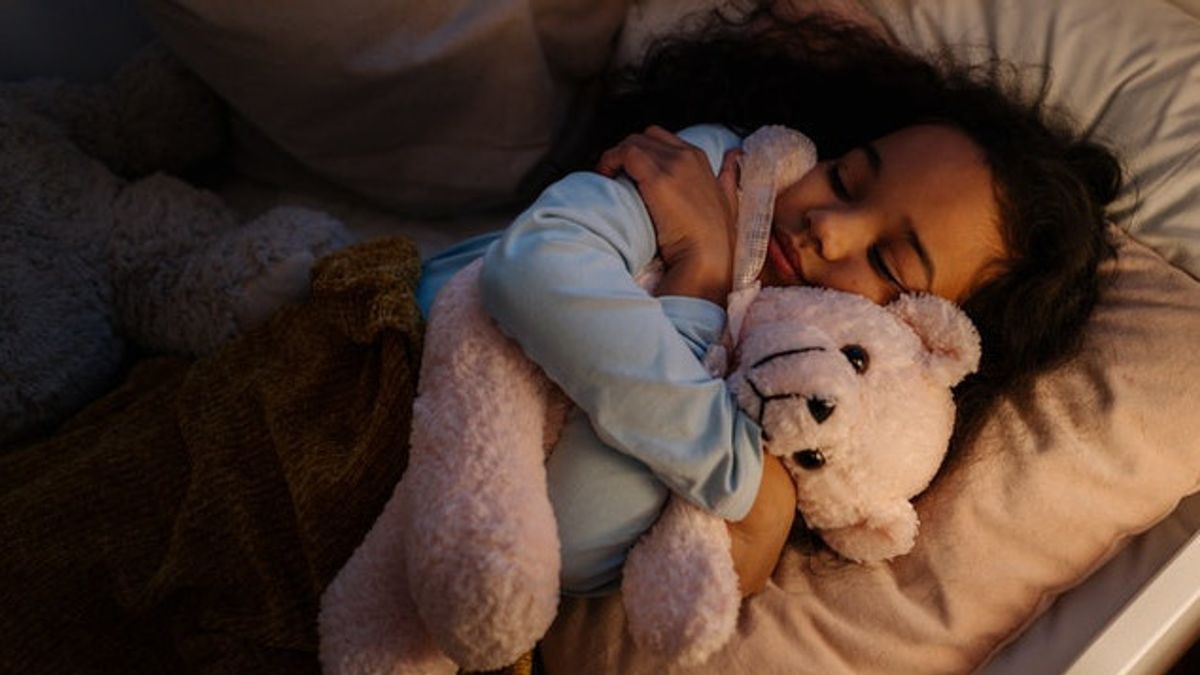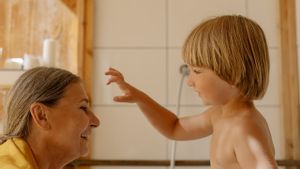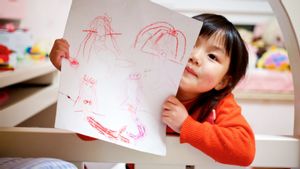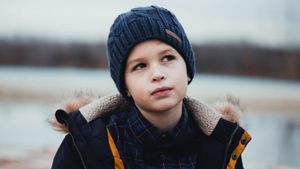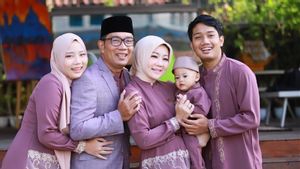JAKARTA - Sleep time is one of the important needs for children and adults to rest the body from various activities that have been carried out all day.
Unfortunately, not all children have really quality sleep. One of the causes is sleep disturbances. One of the sleep disorders in children that needs to be watched out for is sleep apnea.
Cited from the Mayo Clinic, Wednesday, November 10, sleep apnea is a condition when a child's breathing is partially or completely blocked repeatedly during sleep.
A common cause of this breathing problem is the enlargement of the tonsils and adenoids, which are found at the top of the throat. Other causes include obesity, skull, and facial deformities, and the brain's inability to control breathing.
Children who snore or have sleep apnea are more likely to develop behavioral problems than children who breathe normally during sleep.
SEE ALSO:
Cited from Live Science, a study that looked at more than 11.000 children for six years found that during sleep, children with breathing problems were 40 percent more likely to experience behavioral problems, such as hyperactivity and aggression by age 7.
Breathing problems that can occur during sleep include frequent snoring, breathing with an open mouth, and sleep apnea.
"This is the strongest evidence to date that snoring, mouth breathing, and apnea can have serious behavioral and socio-emotional consequences for children," said lead researcher Karen Bonuck, a family medicine expert at the Albert Einstein College of Medicine at Yeshiva University in New York.
"Parents and pediatricians alike should pay more attention to sleep-disordered breathing in young children, perhaps from the first year of life."
According to the American Academy of Otolaryngology Head and Neck Surgery, about 1 in 10 children snore regularly, and 2 to 4 percent have sleep apnea. Breathing problems are most common in children between the ages of 2 and 6, but can also occur in younger children.
The English, Chinese, Japanese, Arabic, and French versions are automatically generated by the AI. So there may still be inaccuracies in translating, please always see Indonesian as our main language. (system supported by DigitalSiber.id)
